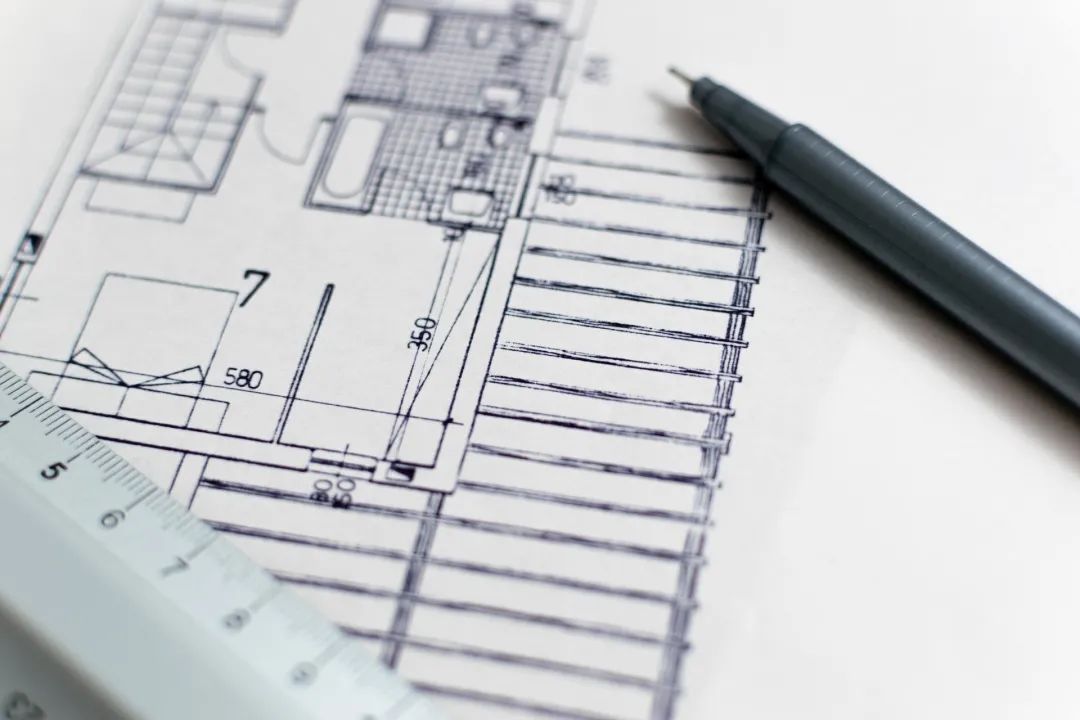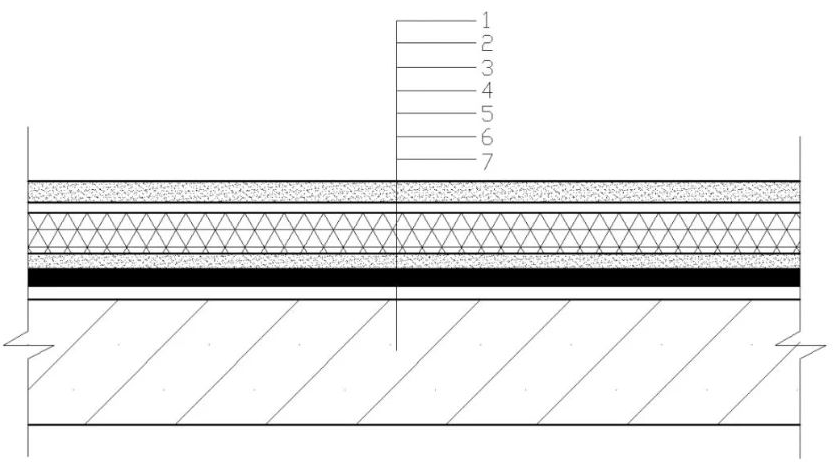At the same time, the space module also provides the premise and foundation for the modularization and standardization of electromechanical system.
The entire lakeside environment has not yet been formed; The headquarters project has also become an important contribution to the construction of the ecological belt around the lake.
At the south entrance of the building @ there are buildings – 1/3 “How many planets do humans need? At the current consumption level, human survival needs about three planets, which has exceeded the carrying capacity of the natural system.” ——Green Building The vertical greening of the facade of Brian Edwards @ the existence of architectural ecology is a crucial dimension in this new scene, which guides the benign interaction between architecture, environment and people.
Office buildings are usually associated with high-density urbanization areas, with intensive personnel and energy consumption; At the same time, compared with the types with fixed functions and forms, the space of office buildings is constantly transformed and updated over time, thus becoming a high consumption product in the ecological sense.
The design not only returns to nature, but also opens the prospect of future office scenes.
CSCEC Riverside Design Headquarters took the lead in proposing and implementing a new ecological design strategy in the hot summer and cold winter climate zone.
The design retains the memory of this original terrain.
CSCEC Lakeside Design Headquarters has conceived a flexible and humanized office space.
On the vertical interface, the double hollow thermal insulation three silver glass curtain wall jointly developed by the design team and the glass manufacturer, as the first boundary of the internal and external climate, can maximize the access to light and block the solar long wave radiation heat.
Roof garden details @ existing buildings – The building aims to explore the design of near zero energy consumption office buildings in hot summer and cold winter areas.
The core tube inside the building is concentrated on one side of the module, forming the differentiation of “service space” and “served space”.
Through the research on the staff size and work characteristics of each department of the design institute, we found the space “common divisor” that is suitable for the needs of large and small departments – each unit module is 33.6m * 33.6m (about 1000 m2), and the axis network is 8400 * 8400mm.
It is estimated that the energy consumption of overhead ventilation gallery @ existing buildings will be as low as about 42kwh/m2 in summer and about 4~8kwh/m2 in winter after the project is put into use, which is only 1/4 of the energy consumption of conventional office buildings.
Section ventilation schematic @ splicing of unit modules of CSCEC Southwest Hospital, forming a concave and convex forward and backward outer interface, increasing the length of the contact surface between the building and nature, and promoting environmental interaction.
Under reasonable scale control, it comprehensively balances passive design, active strategies and renewable resources utilization, exchanges low energy consumption for indoor comfort, responds to nature with appropriate technology, and builds a low-carbon and environment-friendly internal and external environment.
The lake facing facade of the building @ the south entrance of the building @ the building – the building’s return and prospect “leaves have fallen, green, green, and fallen…
168, Jinhua Street, Jinniu District, and in 2010, they moved to No.
Modular buildings and gardens @ existing buildings In 2015, CSCEC’s lakeside design headquarters was located on the north bank of Xinglong Lake in Tianfu New District, south of the city.
The lake view @ existing building looks at the vast lake from the verdant green of the office area.
When cicadas bark at them in summer, their hearts are always cool and full of hope.”—— Historically Protected Buildings in Chengdu/Memories of People in Southwest Institute, CSCEC Southwest Institute has experienced three office parks in Chengdu since its establishment in 1950.
Function module @ CSCEC Southwest Design Institute responds to and coexists in the hot summer and cold winter areas.
The migration of office parks is not only a mark of enterprise development, but also a microcosm of Chengdu’s urban growth.
The “served space” is open and continuous, facilitating future elastic adjustment.
Then we combined multiple 33.6m square unit modules, and divided the area according to different needs.
866, North Section of Tianfu Avenue, High tech Zone, and in 2022, CSCEC Binhu Design Headquarters in Tianfu New Area was completed and put into use.
Compared with the “unnatural” way of closing the boundary to obtain a constant indoor environment, CSCEC Lakeside Design Headquarters has chosen an active and open architectural idea to integrate into the external environment.
Modular garden @ existing building modular design needs to be born.
In the scheme stage, BIM model is used for simulation analysis, and the facade lighting, thermal insulation and green transmission performance are further subdivided according to the orientation.
On the horizontal interface, the lake retreats to form a roof terrace garden of about 8000 m2, including landscape greening, sky farms and sports grounds.
The base is located at the shore, and the original terrain is high in the north and low in the south.
Customized flat opening wind window @ existence The area where Xinglong Lake is located was originally a flood detention depression in the Luxi River basin.
At that time, Xinglong Lake was storing water, and the lakeside was covered with loess.
A vertical greening system is designed outside the curtain wall.
By means of double first floor entrances and southward retreating platforms, it builds a form of growth close to the ground and extending towards the lake, responding to the sunshine, rain and wind from the lake.
We need a sustainable spatial model to adapt to the changing needs in the future.
The roof vegetation is layered, just like the green hills by the lake.
Up to now, CSCEC Southwest Institute has 12 design institutes, more than 20 professional centers and studios, as well as many subordinate companies and branches.
The positioning of the headquarters of large design enterprises determines that the scale expansion will be accompanied by the continuous adjustment and reorganization of departments.
In 1957, they moved to No.
The lakeside facade of the building @ has building institutions and modules.
Modular green wall units are set in the south, and full-length planting grooves and climbing cables are set in the east and west, forming a second dynamic plant interface that changes with seasonal growth.
Facade enclosure structure diagram @ CSCEC Southwest Courtyard Roof Retreat Garden @ There are building blocks stacked and scattered, forming a variety of indoor and outdoor intermediary spaces such as atrium, side court, sunken courtyard, roof garden, and overhead veranda; In addition to inductive electric sunroof, intelligent light guide, manual casement window unit, green plants shading and other independent adjustment measures, a micro environment system with effective interaction of light, heat and wind environment is formed..


